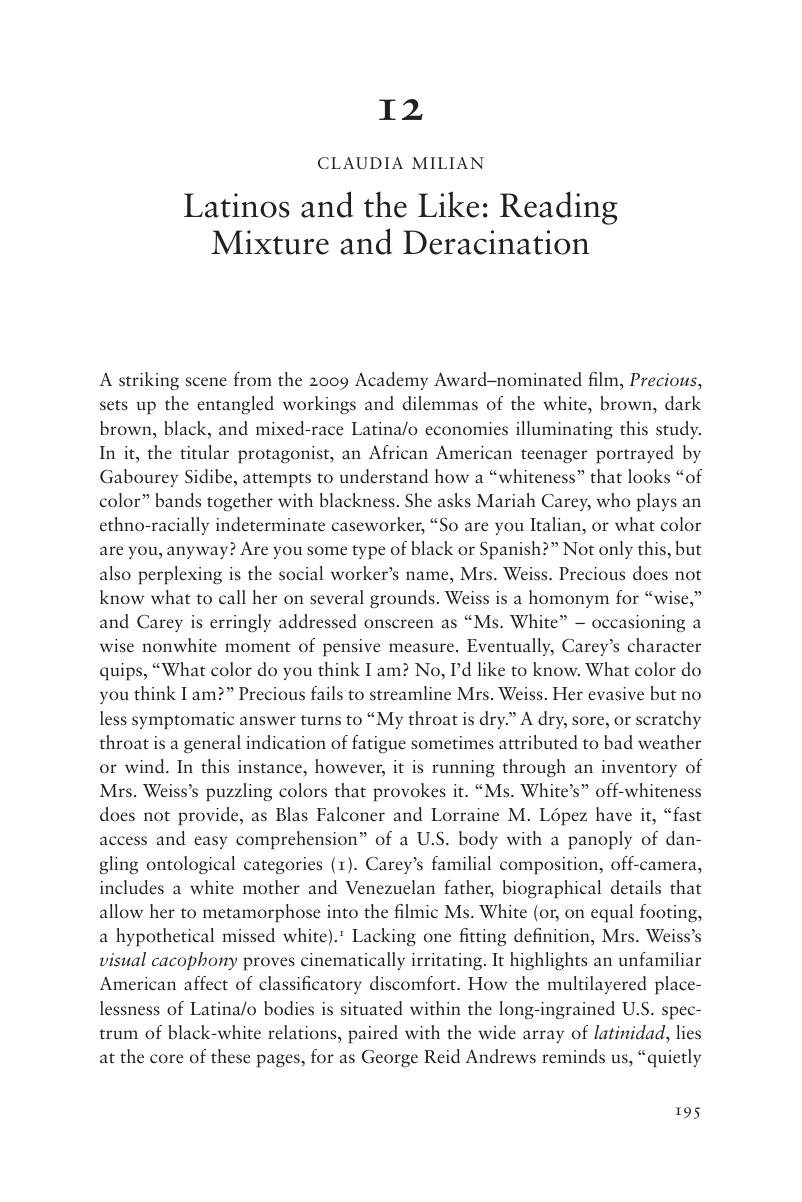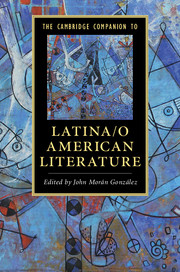Book contents
- The Cambridge Companion to Latina/o American Literature
- The Cambridge Companion to Latina/o American Literature
- Latina/o American Literature
- Copyright page
- Dedication
- Contents
- Notes on Contributors
- Book part
- Chronology
- Introduction
- Part I Early Trans-American Contacts and Conflicts
- Part II Latina/o Literature Since 1960
- Part III Critical Methodologies and Themes
- 9 Latin@ Poetics: Voices
- 10 Latina/o Life Writing: Autobiography, Memoir,Testimonio
- 11 Queering Latina/o Literature
- 12 Latinos and the Like: Reading Mixture and Deracination
- 13 Mestizajeand Cyborgism on Either Side of the Line
- 14 Historias Transfronterizas: Contemporary Latina/o Literature of Migration
- Index
- Cambridge Companions to ...
- References
12 - Latinos and the Like: Reading Mixture and Deracination
from Part III - Critical Methodologies and Themes
Published online by Cambridge University Press: 05 June 2016
- The Cambridge Companion to Latina/o American Literature
- The Cambridge Companion to Latina/o American Literature
- Latina/o American Literature
- Copyright page
- Dedication
- Contents
- Notes on Contributors
- Book part
- Chronology
- Introduction
- Part I Early Trans-American Contacts and Conflicts
- Part II Latina/o Literature Since 1960
- Part III Critical Methodologies and Themes
- 9 Latin@ Poetics: Voices
- 10 Latina/o Life Writing: Autobiography, Memoir,Testimonio
- 11 Queering Latina/o Literature
- 12 Latinos and the Like: Reading Mixture and Deracination
- 13 Mestizajeand Cyborgism on Either Side of the Line
- 14 Historias Transfronterizas: Contemporary Latina/o Literature of Migration
- Index
- Cambridge Companions to ...
- References
Summary

- Type
- Chapter
- Information
- The Cambridge Companion to Latina/o American Literature , pp. 195 - 212Publisher: Cambridge University PressPrint publication year: 2016
References
Works Cited
- 1
- Cited by



